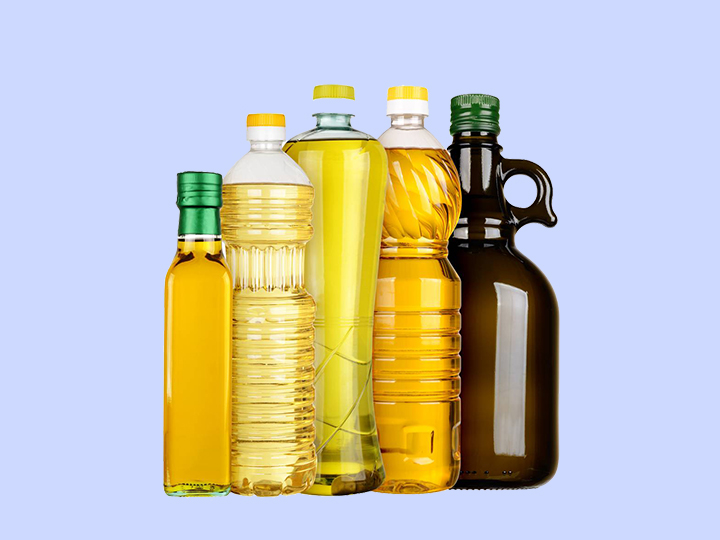
Cooking Oil & Ghee
The most used cooking oil is vegetable oil. Vegetable oils have plant sources such as olive, canola, corn, sunflower, and soybean. These oils contain different fats, such as monounsaturated fats, polyunsaturated fats, and saturated fats.
Benefits: They can improve blood cholesterol levels, ease inflammation and stabilize heart rhythms. The heart association suggests the following cooking oils, which meet its health standards: canola, corn, olive, peanut, safflower, soybean and sunflower, as well as specialty oils like avocado, grape-seed and sesame.
Ghee: Though ghee is rich in fat, it contains high concentrations of monounsaturated Omega-3s. These healthful fatty acids support a healthy heart and cardiovascular system. Studies show that using ghee as a part of a balanced diet can help reduce unhealthy cholesterol levels. Ghee is created by removing milk solids.
There are six major ghees: Grass-fed, Grain-fed, Garlic grass-fed ghee, Grass-Fed Cultured Organic Ghee, A2 Organic Ghee and Lime grass-fed Ghee.
- Helps You Keep Warm From Within
- For Clogged Nose
- Good Source Of Energy
- Source Of Good Fat
- Good For Intestinal Health
- Apply It Over Your Rotis To Decrease Glycemic Index
- Keeps Constipation At Bay
- Good For Heart
- Great For Skin